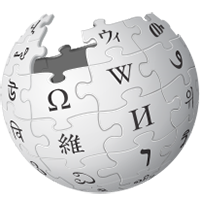More about Museo Nacional de Bellas Artes de Cuba
Works at Museo Nacional de Bellas Artes de Cuba

Sr. Contributor
Both the collection and the architecture of The National Museum of Fine Arts of Cuba embody the country’s rich history.
The museum has both a local and global approach, and even has two separate locations to represent the dual aspects of its collection. While the Universal Art Building houses an encyclopedic body of work from countries around the world, the Cuban Art Building hosts a survey of works that illustrate the country’s unique history, from its status as a colony to the contemporary moment. Highlights of the expansive collection include Cuban artists like Wifredo Lam, as well as a portrait by Victor Manuel Garcia known as Cuba’s Mona Lisa.
Looking at the architecture of the museum’s two buildings presents an interesting history of Cuba. Established in 1913, the museum’s first iteration was housed in a Beaux-Arts building, a European architectural style typical of Cuba’s colonial period. A few decades later, the museum hired Alfonso Rodriguez Pichardo to design a Modernist style building, which opened in 1954. After World War II, Cuba began exporting sugar around the world, and its economy boomed. During this time, a new wave of architecture reflected the country’s newfound prosperity and power on the global stage. Cubans saw this progress as a way to distance themselves from their colonial past and forge ahead with a specifically Cuban modern identity. Architects upgraded the looks of homes, museums, and many other buildings with the modernist aesthetic.
Despite the 1950s Modernist boom, the Communist ethos of the 1959 Cuban Revolution quickly ended this style’s aesthetic dominance. People no longer cared for the Modernist architecture that was popular among wealthy capitalists who made money from exporting Cuban goods. But architecture is just one part of this complex story. To understand Cuban artists’ reactions to the political state of their country through the ages, don’t just study the architecture – be sure to tour the museum’s collections inside both buildings.
Sources
- Cuba Business Report Staff. “Inside The National Museum of Fine Arts in Havana.” Arts & Culture. Cuba Business Report. 24 November 2011. https://www.cubabusinessreport.com/inside-the-national-museum-of-fine-a…. Accessed 25 October 2021.
- Marx, Gary. “New Cuban revolution: Preservation.” Cuba News. Cubanet. 18 September 2005. https://www.cubanet.org/htdocs/CNews/y05/sep05/20e13.htm. Accessed 25 October 2021.
- National Museum of Fine Arts of Cuba. “The collection.” Explore. https://www.bellasartes.co.cu/la-coleccion. Accessed 25 October 2021.
- Prouty, Richard. “Modernism Rotting in Cuba.” One-Way Street: Aesthetics and Politics. 17 December 2014. https://onewaystreet.typepad.com/one_way_street/2014/12/modernism-rotti…. Accessed 25 October 2021.
- Trip Cuba. “National Museum of Fine Arts, Cuba.” https://www.tripcuba.org/national-museum-of-fine-arts-cuba. Accessed 25 October 2021.
- US News. “Museum of Fine Arts.” Best Things To Do in Havana. https://travel.usnews.com/Havana_Cuba/Things_To_Do/Museum_of_Fine_Arts_…. Accessed 25 October 2021.
Featured Content
Here is what Wikipedia says about Museo Nacional de Bellas Artes de La Habana
The National Museum of Fine Arts of Havana (Museo Nacional de Bellas Artes de La Habana) in Havana, Cuba, is a museum of fine arts that exhibits Cuban art collections from the colonial times up to contemporary generations.
Check out the full Wikipedia article about Museo Nacional de Bellas Artes de La Habana











